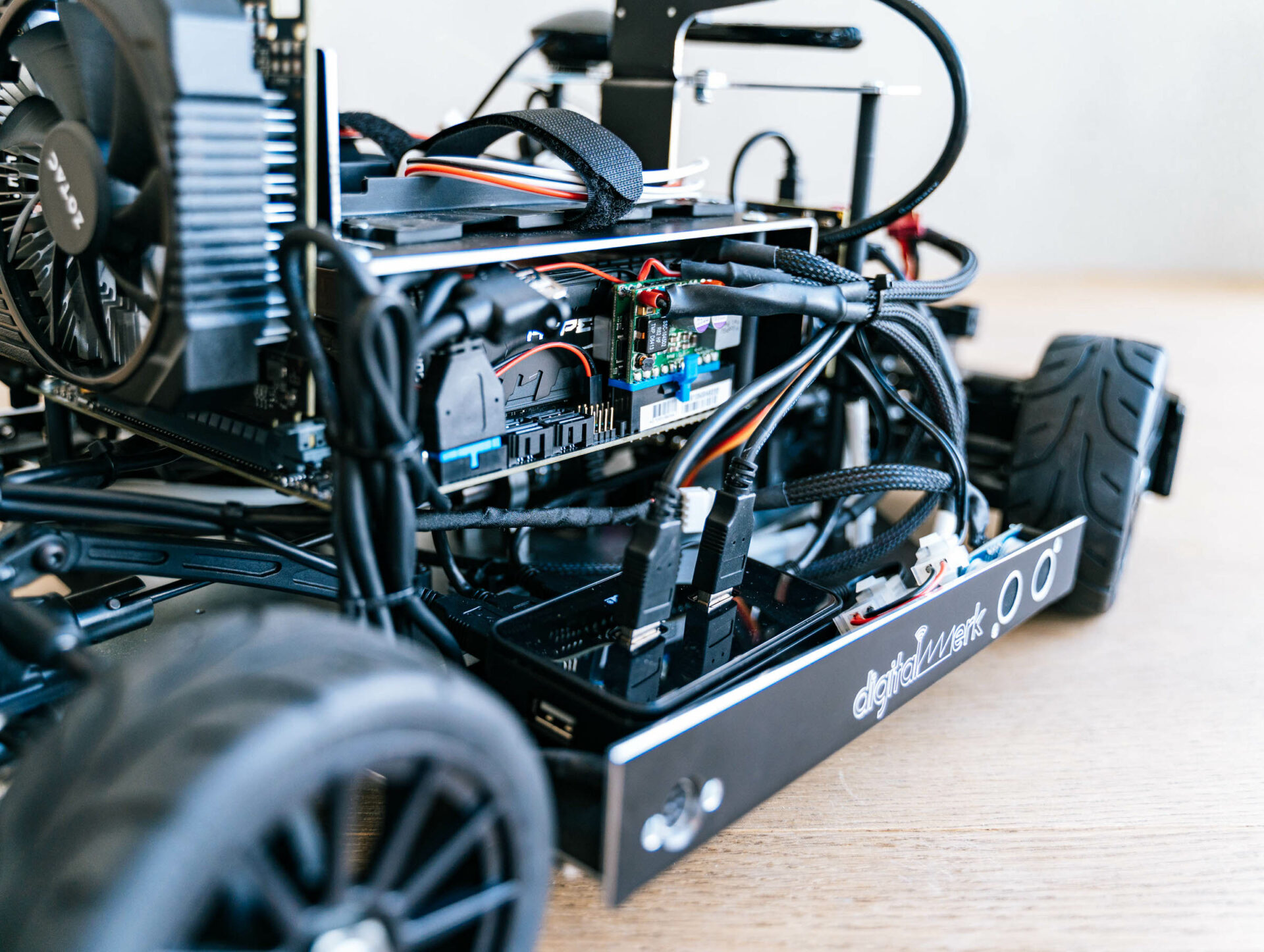Project study SAM – digitalwerk’s ADAS model car for HS Munich
The topic of autonomous driving and driving assistance systems is becoming an ever greater priority, also with regard to the training of future specialists. For this reason, the University of Applied Sciences Munich offers its students from the Bachelor’s and Master’s degree programmes in computer science the voluntary project seminar SAM – Smart Automotive Munich. In cooperation with the University of Applied Sciences Munich, digitalwerk provides the ADAS model car for this purpose.
The aim of the SAM project seminar is to train working practices and techniques in project management as well as situational learning using a project from the field of autonomous driving. In doing so, the students learn to analyse complex technical problems, to design solution approaches, to implement them in teamwork and to present the result accordingly. The basis of this seminar is the ADAS model vehicle from digitalwerk. The programmable model car collects data from different traffic situations thanks to the ADAS software framework ADTF (Autonomous Data & Time-Triggered Framework). Students of the project seminar are thus able to develop driving functions quickly, efficiently and, above all, cost-effectively and to test them directly afterwards. Large automotive companies normally need their own large vehicle fleet for this. “Thanks to the possibility of developing and testing driving functions quickly, the SAM project seminar at Munich University of Applied Sciences is a perfect application for digitalwerk’s ADAS model vehicle,” explains authorized officer Johannes Bauer.
The module is designed especially for students from the Bachelor’s and Master’s degree programs in computer science. But other interested students e.g., from the field of business informatics, can also take part in the seminar. At the beginning of the semester, the students divide themselves independently into groups e.g. intersection detection, demo and simulation. In the summer semester 2020, a particular focus was on improving the stability of the vehicle software, updating to the current ADTF version and adding speed information to the trajectories.
Due to Corona, a live presentation of the results was dispensed with this semester. Instead, the students opted for a film documentary. The video of the project can be viewed at the following link. “We are pleased being to contribute to the success of this student event and are already looking forward to the results of future seminar events,” says Bauer, summing up the commitment at Munich University of Applied Sciences.



